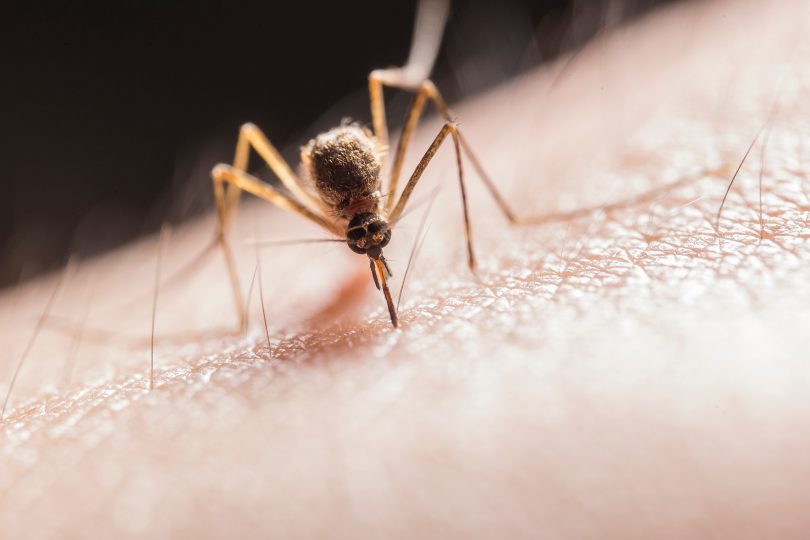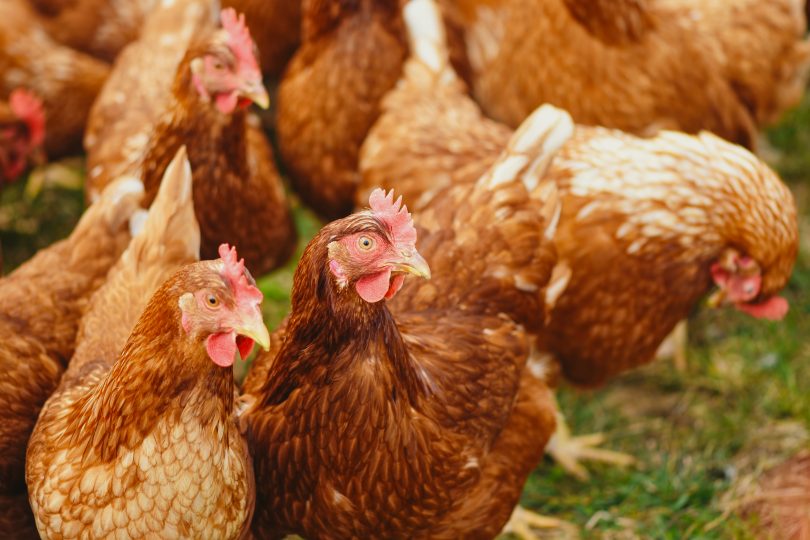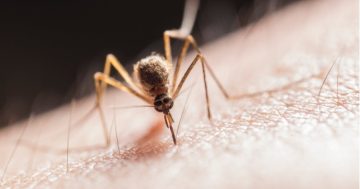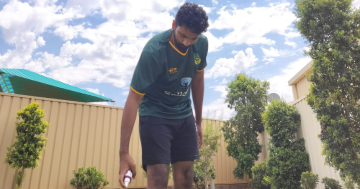
Mosquito expert Dr Cameron Webb says the recent drought may mean some regions are experiencing larger-than-normal populations of the insect. Photo: Supplied.
It might not seem the time for it, but mosquitos aren’t paying much attention to the cold fronts passing through Southern NSW as they enjoy a mid-autumn hatching period. However, a clutch of Riverina chickens are providing frontline detection services for the scourge of mozzie-borne diseases.
Inches of rain, warm days and puddles of stagnant water are providing a delightful nursery for the eggs to hatch and larvae (or wrigglers) complete their final week of maturation in water until they buzz off into the world.
Interestingly, University of Sydney mosquito expert Dr Cameron Webb says it is likely because of the recent drought that some regions are experiencing larger-than-normal populations of mosquitoes compared to years prior simply because the eggs can lay dormant for years waiting for the ideal hatching conditions.
Dr Webb says mosquitoes are highly depend on environmental conditions in the local area to thrive.
“Water and warmth drives their populations, and particularly water,” he says. “They need freestanding water to complete development. They lay their eggs in stagnant water and when they hatch, the initial stages need that water. They can’t complete their development in damp mud or leaves on trees.
“In the past couple of years, conditions have been generally pretty dry. There’s not many opportunities for mosquitos but what happens is their eggs can lay around rivers and wetlands and that’s kind of how they wait out until ideal conditions arrive.”
Eggs can lay for a decade waiting for that ideal water.
Dr Webb says once exposed to water, the eggs hatch. A week or so after that there is an emergence of the adult mosquitoes.
“So if there has been high rainfall or a flood, the mosquitoes can build up populations until they become problematic,” he says.
Dr Webb says the oncoming cold weather will drive them away.

Murrumbidgee Local Health District has been using chickens as an early warning system for mosquito-borne illnesses. Photo: Supplied.
The advice from Murrumbidgee Local Health District (MLHD) is to be aware but not alarmed at the higher than usual incidence of the little bloodsuckers, and to simply continue to take precautions.
Experts have been fully armed this summer with a bunch of chickens who provide an early warning system for mosquito-borne viruses, allowing the MLHD to ramp up preventative measures.
The 60 chickens have formed the frontline of public health in the Riverina towns of Leeton, Griffith, Hay and Deniliquin, where they have been tested weekly during the past six months.
MLHD senior environmental health officer Tony Burns says a chicken’s immune system kicks in after they’re bitten by a mosquito carrying Murray Valley encephalitis, which can be lethal in humans. Ross River virus, which is debilitating and causes severe fatigue, is also of public health concern.
While the chicken’s health isn’t affected by the bite, the antibodies it develops in response can be detected in blood samples, which are sent to Sydney laboratories for testing each week.
Mr Burns says the six-month Sentinel Chicken Surveillance Program, which has run from November 2020 to April 2021, has been particularly important due to increased rainfall in the region.
MLHD works closely with local councils to run the chicken program and find suitable volunteers to house them, take weekly pin-prick blood tests, and post samples to the Centre for Infectious Diseases and Microbiology in Sydney for testing.
Volunteers are trained – a key part of the program’s ethics approval – and chicken coops are inspected by a NSW Department of Primary Industries vet to ensure they are up to standard and fox-proof.
“There needs to be shade, and an area where they can perch and lay their eggs,” says Mr Burns. “We provide food as part of the program, and the volunteer gets free eggs and they keep the chooks.”
While mosquitoes continue to linger in pockets of the Riverina and South West Slopes, residents and visitors in the region are advised to take precautions to avoid bites. These include:
- When outside, cover up as much as possible with light coloured, loose fitting clothing and covered footwear.
- Use an effective repellent on all exposed skin. The best mosquito repellents contain diethyl toluamide (DEET) or picaridin. Reapply repellent within a few hours as protection wears off with perspiration.
- Take special care during peak mosquito biting hours, especially around dawn and dusk
- Remove potential mosquito breeding sites from around the home, including screen windows and doors.
- Light mosquito coils or use vaporising mats indoors. Devices that use light to attract and electrocute insects are not effective.
- When camping, use fly screens on caravans and tents, or sleep under mosquito nets.








